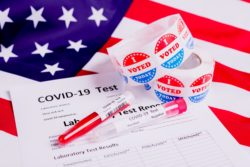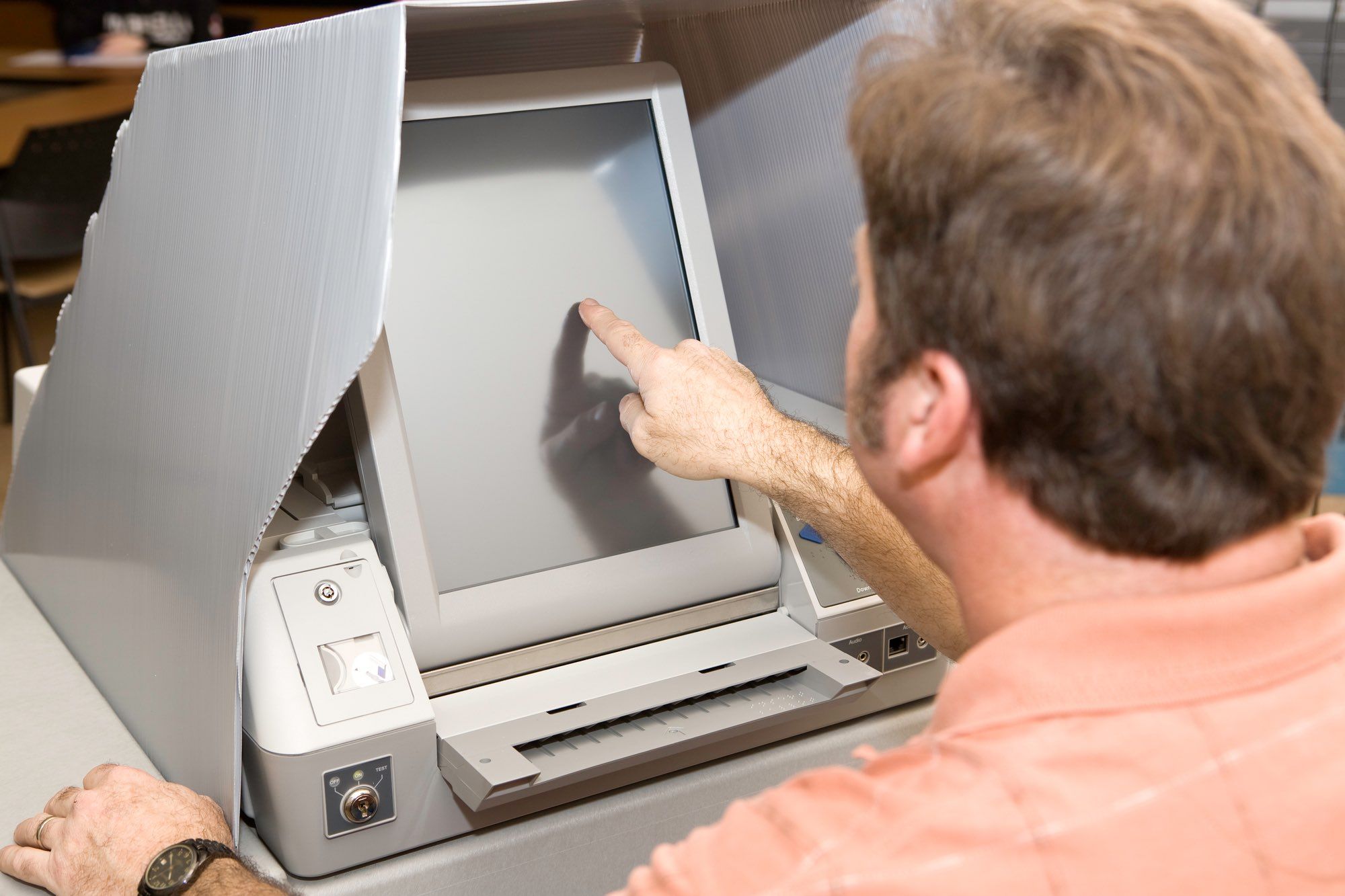Top Class Actions’s website and social media posts use affiliate links. If you make a purchase using such links, we may receive a commission, but it will not result in any additional charges to you. Please review our Affiliate Link Disclosure for more information.
A recent North Carolina voting lawsuit challenges the state’s use of ExpressVote machines, arguing that the machines are unreliable and dangerous.
The ExpressVote lawsuit was filed by the North Carolina State Conference of NAACP and several registered North Carolina voters. They argue that, amidst the coronavirus outbreak, they will be injured by North Carolina’s decision to use ExpressVote machines.
ExpressVote machines include a touchscreen running the voting software. Using this touchscreen or an attached key pad, voters can enter their selections.
Later, after voting is done, the machine reportedly prints out a ballot summary. After voters review these cards, they have the chance to begin again or submit the card.
Not only will these machines allegedly increase virus exposure, the plaintiffs claim that ExpressVote machines have significant problems which will impact voters.
Are you worried about voting during the coronavirus outbreak? Get legal help by clicking here.
According to the plaintiffs, the ExpressVote machines are “insecure, unreliable and unverifiable” which threaten the integrity of North Carolina elections.
After a ballot is cast, the plaintiffs say that voters cannot read or verify their submissions. Because of this, they can allegedly not check that their votes are being recorded correctly. This is reportedly a real possibility if the machines malfunction.
“There are several ways in which the voter’s selections, shown in the text summary, and the information encoded by the printed barcode may not match: the ExpressVote may be malfunctioning, may have been hacked, or may not have been coded properly,” the North Carolina lawsuit argues.
“Because the barcode is not readable by voters, they cannot determine whether the barcode contents match the ballot card’s text summary; nor can they verify that their votes are being accurately marked or cast or make any necessary corrections.”
Additionally, the machines are allegedly prone to defects and security flaws which fail to properly record votes which “creates a risk that the wrong candidates will be declared winners of elections improperly and take office in contravention of the very essence of our democracy.”
ExpressVote machines are electronic ballot marking devices which have reportedly been associated with significant defects.
During the March 2020 primary, ExpressVote machines were allegedly responsible for improperly tabulating votes in at least one North Carolina county after the devices were left on the wrong mode.
“The right to vote in free and fair elections is the foundation of our democracy. It is how we ensure that our government has the consent of the governed,” the ExpressVote lawsuit argues.
“[W]hen votes are not properly recorded or counted, that right is violated. Using the ExpressVote prevents voters from reading their actual ballot before casting it and verifying that their vote is properly recorded, denying their right to vote.”
The plaintiffs also argue that the ExpressVote machines may increase the spread of COVID-19. Because North Carolina residents have direct contact with the touchscreen computer and other parts of the ExpressVote machine, they may be more likely to touch surfaces contaminated with the virus.
“Using the ExpressVote will exacerbate the public health crisis and cause longer lines where more voters will be exposed to one another,” the North Carolina election voting lawsuit argues.
The ExpressVote lawsuit also argues that sanitizing the machines is time consuming, difficult and costly. Although the CDC has offered instructions for reducing direct contact and community spread during voting, the machines may be damaged by these efforts or the methods may not be effective enough.

Based on these risks, the plaintiffs argue that voters should not be forced to use ExpressVote machines.
“Because the ExpressVote is an unreliable, insecure machine, no voter should be required to use it simply because that person has a disability or is choosing to vote early—an option that may be important for limiting lines on Election Day for public health reasons during 16 the novel coronavirus pandemic—as there are other accessible voting system component options certified in North Carolina,” the ExpressVote lawsuit concludes.
Plaintiffs are represented by Mark Dorosin, Elizabeth Haddix, Ezra D. Rosenberg, Bradley S. Phillips, and John Powers of Lawyers’ Committee for Civil Rights Under Law; Courtney Hostetler, Ronald Fein, John Bonifaz, and Ben Clements of Free Speech for People; and Moe Keshavarzi, Bridget Russell, and Emerson Luke of Sheppard Mullin Richter & Hampton LLP.
The North Carolina ExpressVote Lawsuit is North Carolina State Conference of the NAACP, et al. v. The North Carolina State Board of Elections, et al., Case No. unknown, in the North Carolina General Court of Justice for Wake County.
Join a Free Coronavirus Class Action Lawsuit Investigation
If you believe your rights were violated in a way that is directly related to the coronavirus pandemic, you may qualify to join this coronavirus class action lawsuit investigation.
Read More Lawsuit & Settlement News:
Bank of America Call Recording Lawsuit Reaches $1.9M Settlement
Coronavirus Class Action Says Small Businesses Suffering Due to COVID-19 Closures
Preventing Sexual Assault: What Can School Staff Do?
California & New York CBD Supplement False Labeling Class Action Lawsuit Investigation
ATTORNEY ADVERTISING
Top Class Actions is a Proud Member of the American Bar Association
LEGAL INFORMATION IS NOT LEGAL ADVICE
Top Class Actions Legal Statement
©2008 – 2024 Top Class Actions® LLC
Various Trademarks held by their respective owners
This website is not intended for viewing or usage by European Union citizens.
















4 thoughts onN.C. Lawsuit Claims ExpressVote Machines are Flawed, Could Spread COVID-19
Add me please
add me please
Please add me to this . I had to strip entire deck because of it which took hours hours and days and days.poul
Please add me